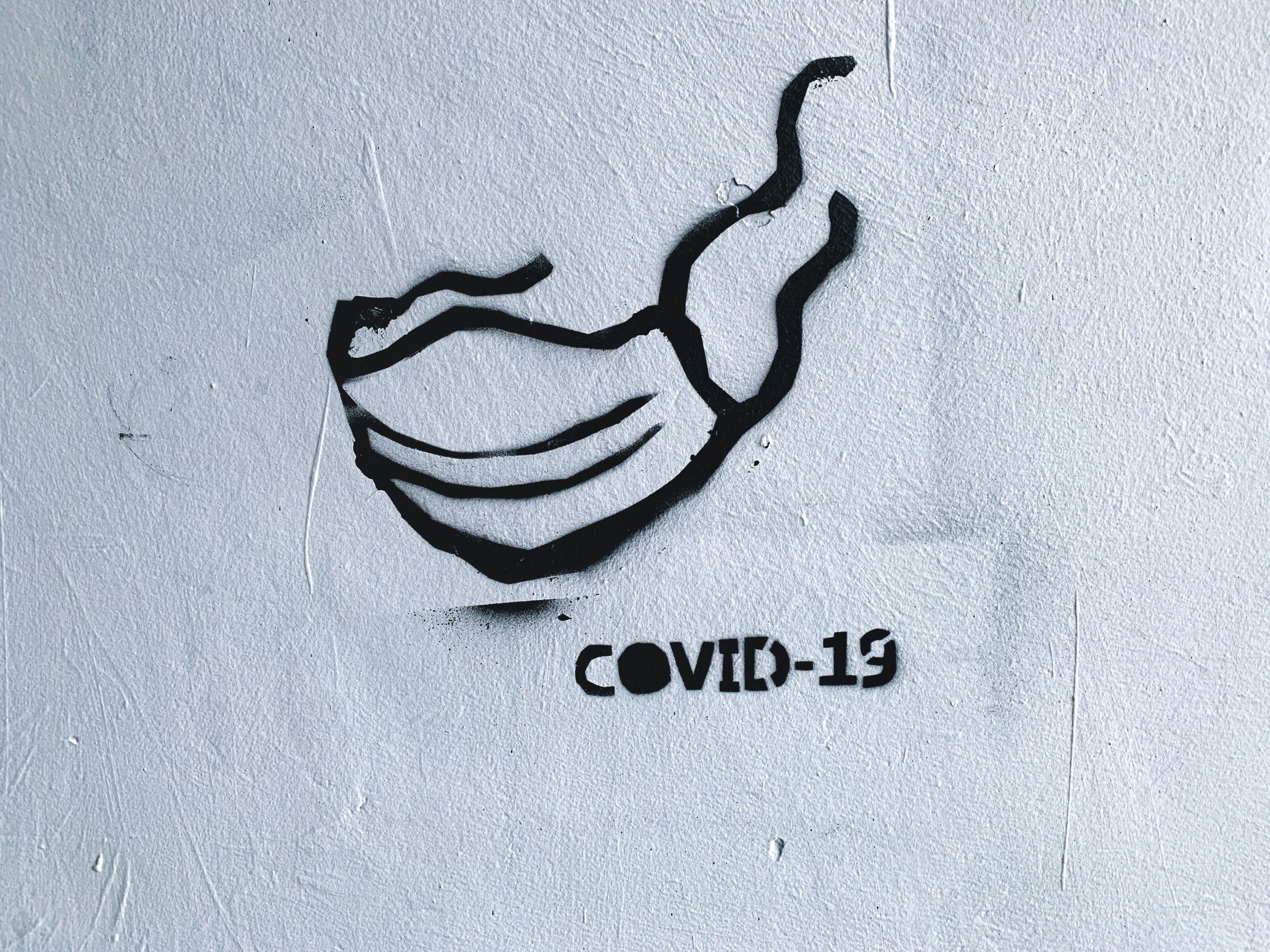Leading with wisdom through the global pandemic
One year ago, almost exactly, the World Health Organization (WHO) declared COVID-19 a global pandemic. Just like that, our lives changed. Lockdowns, isolation, collapsing global markets, overburdened health systems, and uncertainty like nothing we’ve faced before.
Patient Ambition: Grassroots Innovation in India
For three decades, CORO has worked with India’s most marginalized, politically and socio-economically disadvantaged communities. Taking a bottom-up approach, their programs and campaigns empower India’s “unseen” communities to articulate and voice their rights, to a government who otherwise treat them with neglect. CORO focuses on community involvement and sustained engagement, equipping these populations with the tools and leadership skills they need to enable social movement in the long run.
CORO has built a robust grassroots infrastructure of more than 1,268 community leaders and 250 CBOs/NGOs. Through various times of crisis in India – from the Bombay Riots in 1992-1993 to the coronavirus pandemic today – CORO collaborative networks have developed a deep capacity for rapid, nuanced and impactful action.
When the pandemic first struck India, the strategy conceived by municipal and national governments failed to consider the country’s most vulnerable – daily wage and migrant workers, single women, victims of domestic violence, the urban poor, small vendors, the undocumented, Dalits (who belong to the lowest caste in India), and Tribal communities in rural areas. CORO moved into rapid action, providing aid packages of food, sanitary products and essential goods to more than 10,168 families, in Maharashtra and Rajasthan. But as the lockdown continued, it became clear that the consequences were nuanced, multifaceted, and called for multiple, simultaneous initiatives.
With the money raised through online campaigns, generous donations from philanthropic partners and collaborations with several vendors, charities and NPOs, CORO were able to work on five interventions to alleviate hunger and livelihood insecurity, reduce exposure to coronavirus, assess and mitigate levels of gender-based violence and increase access to clean public toilets.
To date, CORO has equipped 6,500 frontline workers with PPE they would otherwise have had no access to. Direct beneficiaries from this effort include sanitation workers, and those manning public toilets – whom a huge proportion of India’s population relies on.
One of CORO’s most inspiring efforts was in response to the uptick in domestic violence, afflicting women in India’s most vulnerable communities. In the urgent requirement for PPE, the organization saw an opportunity for these women to revive their livelihoods and have economic autonomy. In partnership with local grassroots, they employed groups of women to manufacture reusable cotton masks at home, which have been sold locally at affordable prices to those in need. Through this initiative, which has expansion plans, over 7,000 masks have been manufactured, and a vast network of vulnerable women are seeing the financial and mental rewards of occupying themselves with mask masking.
CORO’s connectedness and relationships with India’s local communities has been key in the distribution of aid and emergency services through the pandemic. Working closely with their grassroots network has enabled them to access communities that, particularly given the challenges posed by lockdown, they would otherwise have struggled to reach. Importantly, CORO’s unparalleled approach to collaborative work has helped India’s most vulnerable populations to organise their own relief systems and become self-sufficient.
Learn more about CORO’s initiatives here and, if you wish to donate, you can do so here.
Relentless Generosity: Safeguarding Dignity in Detroit
Detroit is an incredibly diverse city, buzzing with innovation, an exploding startup scene, and local communities injecting a strong sense of collaboration into its growth and development. All the while, its population is one of unique vulnerability. With a third of its inhabitants living in poverty, and an estimated 14,000 individuals being homeless, Detroit has become a fertile breeding ground for COVID-19 – and one of the cities worst hit by the pandemic in America.
But whilst the majority of charities and support centres have closed their doors to the pandemic, the team at The Pope Francis Center (TPFC) has been working harder than ever to support and protect Detroit’s homeless community.
30 years ago, the pastors of Saints Peter and Paul Jesuit Church opened their doors to those in need of refuge from a harsh winter storm. This spontaneous act of kindness gradually evolved into TPFC – a day centre providing nutritious meals, showers, laundry, hygiene, clothing, food, medical help and essential services, six days a week, to those in need. TPFC is committed to eradicating chronic homelessness in Detroit by 2030, and is seen as a real “beacon of help and hope” for the city.
“When we come together in a spirit of compassion and generosity, we can defy expectations and find innovative solutions to complicated problems.”
– Fr. Tim McCabe SJ, Executive Director
With the pandemic rendering more of Detroit’s population homeless, and sparking widespread food insecurity, TPFC saw a great surge in the demand for support. Seemingly overnight, they adapted and modified their services. They shifted all of their operations outdoors, installing heated tents, portable bathrooms, mobile showers and hand-washing facilities, they also continued to provide hot meals, but did so in take-away containers – with the number of meals served per day rising from 200 to over 500 as a result of the crisis.
In March 2020, they launched a drop-in COVID screening clinic, allowing individuals to be checked for signs of infection and, if necessary, transporting them to a location for testing and quarantining – all free of charge. Meanwhile, with most of the city’s other clinics remaining shut or inaccessible, TPFC offer a general medical clinic, where guests can receive treatment for other ailments and guidance on how to stay safe around the virus – helping reduce the probability of outbreak within homeless communities.
To help fund their invaluable work, TPFC launched the campaign ‘Sanctuary For The Season’, which raised $250,000. They have also been receiving support from local businesses such as Buddy’s Pizza, who donated 400 meals to the centre, and clothing label Carhartt, who donated 400 coats and pairs of gloves.
Whilst all of us are at risk of the virus, TPFC recognise that the lack of access to hygiene facilities, medical care, good nutrition and shelter, and the predisposition to poor health, put homeless people at an unquestionable disadvantage. But, the compassion, dedication and resourcefulness of this team of less than 10, has driven an army of volunteers and generous local businesses to make sure that this is not the case.
To make a donation for The Pope Francis Centre, follow this link.
Diverse Communities are Resilient Communities: Building Bridges in Bradford
The city of Bradford, in the UK, is a district of real ethnic and cultural diversity – a third of its population is of non-white origins. Amid post-industrial decline, social unrest has simmered, exacerbating issues around prejudice and discrimination. But, with characteristic Bradfordian grit, the communities that form this cultural melting pot are driving regeneration.
The Bradford Council is determined to push these efforts. Instead of being defeated by the physical isolation brought about by the pandemic, the Council has identified the opportunity to define and address the needs of the people of Bradford. Bradford Council’s vision has come to fruition in a wealth of initiatives to help cultivate compassion and build stronger relationships between the city’s various communities.
Citizen Coin is an innovative mobile app, unique to Bradford, which recognizes and rewards people for acts of social-good. It is a virtual monetary system which “inspires acts of kindness”. The app grants users “digital coins”, earned from time volunteering in the local community, which can then be exchanged for discounted products and services in the area.
Whilst encouraging voluntary work and creating opportunities for individuals to learn new skills, the scheme also drives flow to small businesses. With local trade and retail feeling the pressures of the pandemic, the Citizen Coin has been a real source of support.
Bradford have also got involved with the nationwide project Creative People & Places (CPP) (supported by Arts Council England), establishing their own, local strand of the initiative called THE LEAP. The mission of CPP is to cultivate creative experiences “for, by and with” local communities, in areas where there is lack of engagement with arts and culture. THE LEAP is focussed on inspiring young people between the ages of 16-25 to use art and creativity to tackle prominent social issues in the Bradford district.
Over a 12-month span, it offers successful applicants financial support, one-to-one mentoring, training and access to a wide range of tools and resources to help bring young creatives’ ideas to reality. From documentary film-making to activist theatre, THE LEAP is helping carve the futures of Bradford’s promising artists, whilst advocating the influence and impact that art can have on society.
So far, through the Bradford For Everyone initiative, Bradford Council has developed and commissioned over 40 projects – providing a range of meeting places for people of all different religious, socio-economic and ethnic backgrounds. Through these opportunities for community engagement and involvement, they hope to slowly unite Bradford’s various social divisions and sculpt a brighter future for the city.
Learn more about Bradford for Everyone on the Bradford People Library and find out how to get involved following this link
Radical Collaboration: Collective Action to Combat Food Insecurity in New York
West Side Campaign Against Hunger (WSCAH)’s work is founded on their three principles of ‘Dignity. Community. Choice’. They work in partnership with their customers, with many volunteering their services or acting on the board of directors. This model provides direct insight into the communities that they cater to, and ensures people’s needs are heard. Striving to challenge the perceptions around hungry people, the WSCAH community is built on foundations of respect and autonomy, providing “access with dignity”. The organization places a strong emphasis on healthy food, with fresh produce constituting 47% of the food distributed in 2020.
For over forty years, WSCAH has worked to alleviate hunger across New York City. A true pioneer in the field, it was the first ‘customer-choice supermarket style pantry’ in the US, developing a unique model that promotes empowerment and self-sufficiency within the communities it serves.
The organization operates across all five boroughs of New York, giving low-income residents access to healthy food, support services, culinary training, nutrition workshops and cooking demonstrations.
Before the pandemic, WSCAH operated several open pantries across the city where residents were given points to spend on their own selection of groceries, allowing customers to shop to their preferences and specific requirements. But, with the mobility restrictions brought about by the pandemic, the model needed adapting. The organization responded to this by developing its ‘Mobile Market Program’, which serves the needs of those unable to reach the other locations. The ultimate purpose: to ensure no-one in New York is left unaccounted for.
Last year, as coronavirus cases in New York rose exponentially, so did the levels of food insecurity. April saw a threefold increase in WSCAH customers, compared to their usual average rate. It became clear that their help, throughout the pandemic, would be more crucial than ever.
Since the onset of the virus, WSCAH has been joined by over 1,300 new volunteers. The teams delivered food directly to New York’s most vulnerable citizens, moving their pantry locations outdoors and distributing healthy food parcels to recovering COVID-19 patients upon their discharge from hospital.
Over the winter of 2020, they collaborated with 32 different organizations across the 5 boroughs of New York, such as Uber and Lyft – who helped with distribution and delivery of food boxes to peoples’ homes. Meanwhile, they have been working virtually to connect customers to over $1.3 million worth of food stamps (SNAP benefits), ensuring that they have the additional resources necessary to provide food for themselves and their families.
As the pressure on WSCAH has increased, they have responded by expanding and adapting their services, reaching staggering new numbers. In 2020 alone, they reached 12,727 new families and distributed 2.2 million pounds of food; the number of individuals they served increased by 178% and the number of household visits by 93%.
WSCAH have used this crisis as an opportunity to grow and consolidate their services, proving they are a truly reliable resource for the residents of New York. They have worked tirelessly to remove any shame or obstacles around seeking help, making sure nobody has to face the pandemic malnourished or on an empty stomach.


